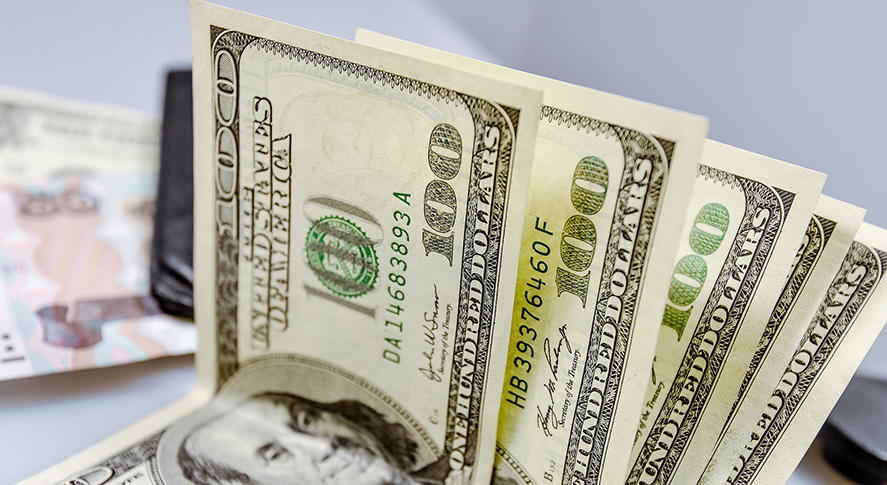How to get rid of debt and start earning?

Being able to get a cash loan or buy something makes life much easier for many people. But it often happens that he borrows, a person overestimates his capabilities and falls into a debt hole, from which it is very difficult to get out.
We propose to break the vicious circle by applying the tips from our article. They will definitely help you stop living in debt, the main thing is to start using them immediately.
- Start keeping a close eye on your finances. To do this, calculate the total amount of all debts and write in a notebook how much you have to return to the bank, MFIs, acquaintances, relatives. This will allow you to fully understand the current situation and build a step-by-step action plan.
- Set a goal to pay off all your debts over a period of time, such as six months. It is important to soberly assess your capabilities, because in the case of simultaneous repayment of all loans there is a great opportunity to stay with nothing. The easiest way to say goodbye to debts is to pay them off gradually and continuously over several months..
- To avoid loans in the future, make a preliminary plan before buying, repairing or going on vacation abroad. Long-term planning will help you be financially prepared and financially independent.
- Learn to make a clear distinction between what you really need and what your advertising requires. To do this, before buying on credit, answer the question: “Can I buy a cheaper counterpart and be satisfied?”, “Can I wait until I raise the required amount for the selected product, so as not to get into debt?.
- STOP. Stop taking loans, let those that have not yet been repaid be the last. Of course, unforeseen coincidences or force majeure cannot be ruled out, but by paying off debts, you can start saving. Thus, a financial cushion will be formed, which will be insurance for extreme cases.
How to stop relying on credit cards to make ends meet
Although many credit cards have low interest rates, careless use can still lead to debt and stress. People are used to using the credit limit on the card to live up to their salary. Thus, they are constantly debtors to the bank. But do not despair if you are heavily dependent on borrowed funds. You can get out of debt gradually and almost painlessly, if you follow some rules.
Creating a budget
We know this advice sounds like a cliché, but budgeting and tracking your own expenses are the cornerstones of getting rid of debt and credit.
Sum up all your sources of monthly income and calculate how much money you spent on mortgages or rent, transportation, food, etc. It is also advisable to set aside part of your monthly income to repay debts.
When you have a balanced budget, you know exactly how much money you can spend on groceries, restaurants, entertainment and shopping each month. If certain expenses are not invested in the budget, you should try to avoid them, give up some purchases, especially on credit.
Keep track of your expenses
You can do this with a free app on your phone or take notes in Notepad. If you have lived for half a month, but have already eaten three quarters of what you spent on food outside the home, you will have to normalize the rest of the expenses to have enough by the end of the month.
Forget about times when you used credit to fill in the gaps, and focus on carefully monitoring your expenses on a daily basis.
Hide your credit cards
Creating a budget and tracking costs is easy – sticking to these plans is much harder. Use the “out of sight, out of heart” approach and physically withdraw your credit cards from your wallet so that they are inaccessible. Don’t forget to remove all card binders from your smartphone so that you don’t “accidentally” pay for them in the supermarket.
Hide credit cards in the far box, between the mattresses on the bed or give them to a loved one for safekeeping in a safe place for several months. During this time, you will get used to living on money, sticking to a budget, and you will see that you are doing great without a credit card.
Get rid of the debtor’s thinking
Debt is a meaningful word and how many emotions it carries … And fear, and hope, and despair, and greed, and gratitude, and dissatisfaction, and hopelessness, and irresponsibility, and experience. Any new debt in the form of a loan or a loan you take brings a whole range of feelings into your life, unfortunately, they are not always pleasant. However, this is rarely realized immediately. Many people mistakenly believe that a new loan will save them and help get out of the crisis. Thus, debtors have more liabilities to various credit institutions, and less money.
For those who live without debt, life is the opposite: money is added every day, and no credit.
The difference between these categories of people is not in the availability of high-paying jobs, education or special skills. The secret is in the right mindset.
Almost 90% of our country has been brought up for years in such a way that a person who grew up without realizing it, constantly lives with the thought that everyone around is guilty of something. “My husband has to support me,” “The government pays my salary on time,” “The state has to pay me a pension and take care of my old age,” the list goes on and on, right? Such thinking is nothing more than a focus on debt and the psychology of the debtor.
Try to live by the new law of the universe, focusing on the idea that all life is your conscious choice. Give yourself an easy way to choose, because everyone always has a variety of options. Allow yourself to see them and back up your thoughts with action. When you see new opportunities, do not be afraid to take advantage of them, because the modern world of successful people lives by a new principle – “Measure once and cut seven times, and then choose from the cut what you need. Time is fleeting and while you think, someone else is already cutting. ”
Sit on a cashless diet
It is preferable to use cash, because in this case you will physically feel the depletion of the wallet and more conscious purchases.
Withdraw cash from your bank account, put them in different envelopes (planned budget). For example, you save $ 250 a month on groceries, put that amount in an envelope, and sign. If you get paid every two weeks, you need to save $ 125. Every time you make a purchase, you pay for it in cash, and instead add a check to know where the money went.
If you spend money allocated on one envelope, you can use money from another envelope, but you will have to donate in this category to increase spending in another.
That’s what budgeting is, living on money and giving up credit cards. Each of these habits will help you better understand what you can afford every month.














Leave a Reply